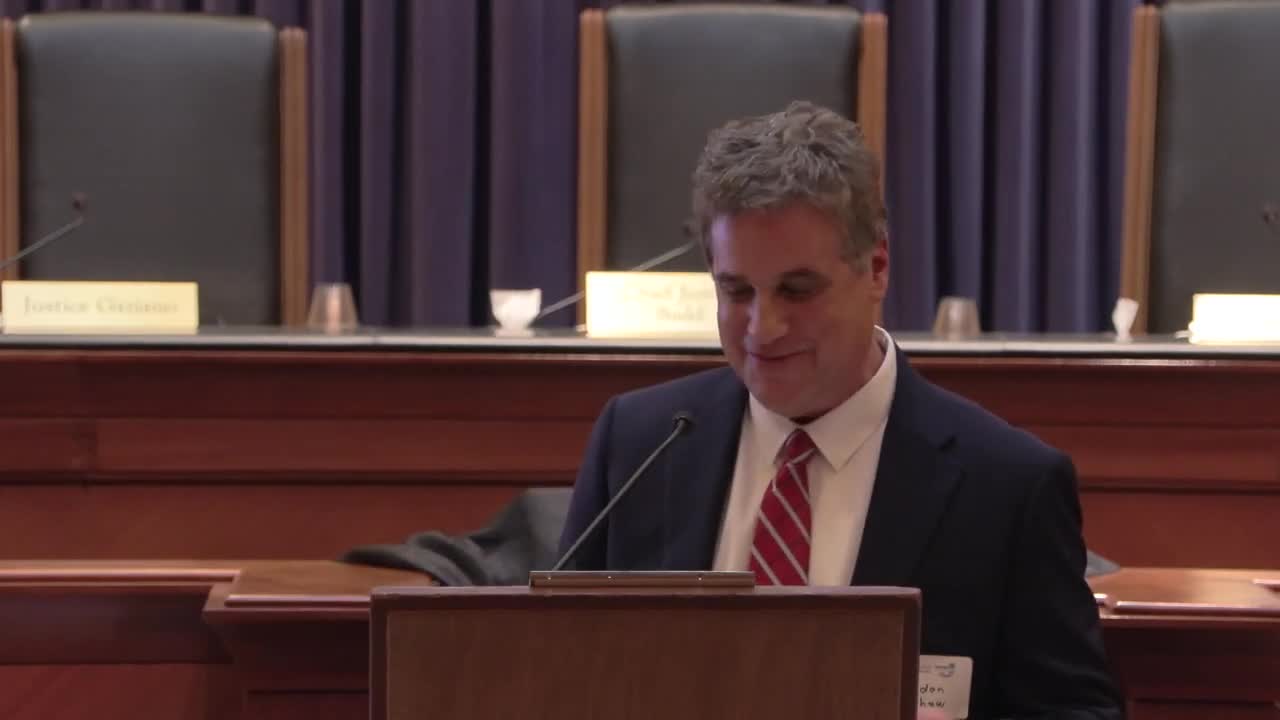Panelists push user-centered design, e‑filing expansion and cautious AI use to improve access to justice
Get AI-powered insights, summaries, and transcripts
Subscribe
Summary
A multi-stakeholder panel at the Access to Justice Commission symposium highlighted progress in court technology — from MassCourts and Wi‑Fi to guided interviews and public dashboards — and emphasized plain‑language forms, usability testing, expanded language access and human oversight for AI.
A panel of court and legal‑aid leaders at the Massachusetts Access to Justice Commission’s symposium described rapid progress in digitizing court services and the tasks ahead to make that change inclusive.
Lee Cavanaugh, director of research and planning for the Trial Court, traced three decades of measurement and technology work that culminated in shared case management (MassCourts), public dashboards and substantial growth in interpreter services. "Today we have... over 150,000 interpreting events in the past year," Cavanaugh said, noting an increase from roughly 22,000 events in 1995.
Steve Duncan, chief information officer for the Massachusetts judiciary, emphasized infrastructure investments that underpinned pandemic-era remote hearings and expanded public access. "We're seeing more than 40,000 people a month using the Wi Fi," Duncan said, describing Wi‑Fi deployment in 91 of 94 courthouses.
Panelists described concrete tools already in use. Brian Reichardt of the Massachusetts Legal Websites Project highlighted mobile‑first public services — two‑thirds of MassLegalHelp users now access the site via phone — and a legal resource finder that matches users to organizations with open intake. Caitlin Reddy (deputy CIO, eCourts) and Quentin Steenhouse (Suffolk Law Lit Lab) discussed guided interviews that populate court forms and, in some pilots, can file electronically with the court through certified third‑party partners.
A central theme was human‑centered design. Panelists said usability testing and plain‑language drafting are essential: the Trial Court’s order on forms management requires plain language and design standards for new and revised forms, and since 2023 staff have revised about 215 forms (roughly 35% of forms hosted on mass.gov), the panel said. Charisse Perry (director of court services and law libraries) described court service centers and law libraries as critical in‑person supports for people who cannot use technology independently.
AI was discussed as a tool for efficiency, not a replacement for human judgment. Panelists urged guarded deployments — using AI to create first drafts of self‑help materials, translate text for usability tests, or prefill forms — followed by human review and usability testing before public release. "We're trying to use AI to create first drafts, and then a human looks it over before it ever sees the public," Steenhouse said.
Funding and uniformity were recurring concerns. Panelists called for sustained investment in core systems, language access (translation and interpreter capacity), and greater uniformity across court offices to reduce confusion for court users. They also noted rapid growth in electronic filings — from about 665,000 documents in 2021 to close to 2,000,000 in fiscal 2025 — and warned that system capacity must keep pace.
Next steps: panelists recommended continued usability testing, expanded plain‑language and translation work, pilot projects that pair guided interviews with e‑filing, and transparent privacy practices to build users’ trust in digital services.
Attribution: Quotes and attributions come from panelists Lee Cavanaugh, Steve Duncan, Brian Reichardt, Quentin Steenhouse, Caitlin Reddy and Charisse Perry during the Access to Justice Commission panels.
